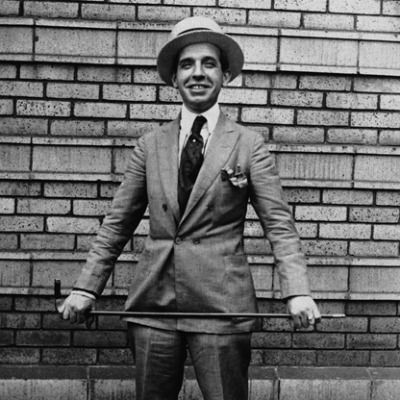
BETAThis is a BETA experience. You may opt-out by clicking hereI cover personal finance, taxes, retirement, nonprofits, scandals and other stuffBettmann / Corbis
Mr. Ponzi, Meet Mr. Madoff
In a Ponzi fraud (so named for the infamous 1920s Boston scamster pictured here) a con man pays off earlier investors with funds from newer investors rather than from profits. Such schemes remain alive and well today, with Bernard L. Madoff’s $65 billion fraud the highest profile example. But dozens of other pyramids are exposed across the country every year. To avoid becoming a victim, heed these warning signs.
For more about a recent New Mexico Ponzi, click here.
Shutterstock
The return is too high.
One-year FDIC-insured CDs now pay at most 1.5%. Any investment touting a return a lot higher than that warrants close scrutiny. If it’s such a good deal, why aren’t the promoters keeping it for themselves?
Looking for risk-free yield? Learn about I-bonds.
Vincent Yu / AP Photo
Stated returns are too steady.
Stock markets and interest rates often vary widely from year to year. So an above-average return that doesn’t budge in response to changing economic conditions is inherently suspect.
How to retain your sanity in a volatile market, click here.
Courtesy of KOB-TV
That terrific return is guaranteed.
In New Mexico, Douglas Vaughan, pictured here, signed a “personal guarantee” on three-year investments he offered with returns as high as 25%. He’s now facing civil Ponzi fraud charges. High reward and low risk are mutually exclusive.
For the full story, click here.
iStock
Investment methodology makes no sense.
Ponzi himself touted to suckers an international arbitrage involving buying and selling coupons redeemable for postage stamps. Besides its complexity, there weren’t enough coupons in existence to use. Beware investments you can’t understand.
For scams that proliferate during hard times, click here.
iStock
Investment methodology is unexplained.
Alert to claims that investing strategy is proprietary and can’t be disclosed. Such claims of a mathematical “black box” can be the refuge of scoundrels.
For more on black box investing, click here.
iStock
There’s little documentation.
Inadequate paperwork can be a tipoff. This includes initial disclosures as well as financial statements that only arrive sporadically.
Louis Lanzano / AP Photo
You’ve never heard of the auditor.
Despite supposedly managing $65 billion, Madoff was audited for years not by a major firm but by the three-person accountancy of Friehling & Horowitz in New City, N.Y. Partner David G. Friehling awaits sentencing after pleading guilty to fraud and tax charges.
iStock
All the investors seem the same.
While Ponzi was an equal-opportunity scamster, many contemporary scamsters look for investors with whom they have an affinity, by religion, social club, geography or whatever. The goal is to find marks who will let down their guard and make investments based on little more than reputation. Madoff, for instance, sought out fellow members of the Jewish community.
For more on affinity fraud, click here.
Ace Stock Limited. / Alamy
There’s no independent asset custodian.
The lack of an arms-length third party to hold invested assets makes it a lot easier for chicanery to occur. This is especially true in Ponzis, where the scam is the undetected use of fresh money to pay off existing investors. New York celebrity advisor Kenneth I. Starr, accused in May of running a $30 million Ponzi, allegedly held some client assets in an office safe.
For more on custodians, click here.
iStock
A long-running offer isn’t registered.
State and federal law allows sale of certain securities that haven’t been registered, or subject to extensive disclosures. One common claimed exemption is too few investors. But that becomes problematic if the promoter is able to find lots of new investors year after year.
For an example, click here.
A journalist for five decades, I’ve written for Forbes since 1987. I’ve covered personal finance, taxes, retirement, nonprofits, scandals and other topics that interest… Read MoreA journalist for five decades, I’ve written for Forbes since 1987. I’ve covered personal finance, taxes, retirement, nonprofits, scandals and other topics that interest me. I also am the author of a novel, OFFSIDE: A Mystery. Email me at: [email protected] . Read Less© 2020 Forbes Media LLC. All Rights Reserved.AdChoices
